It is mid September and although the summer heat is still not subsiding in Ontario, it is prime time to do some canning. All the bountiful crops are ready for picking and for us, that usually includes: peppers, tomatoes, and eggplants. In this part of the world, growing season starts late and most vegetables are planted no earlier then end of May. Morning frost and cool nights are not unusual and they persist until late May. Late planting results with harvest delays from few weeks to about a month when compared to in the Balkans.
We got our supplies from local farms and made roasted peppers and Ajvar.
Roasted peppers are simpler to make, so we decided to start with them. It took about couple of hours to roast a bushel of red peppers on our old charcoal grill.
I love this grill. It has been about 18 years since we bought it and it still goes strong. It is indestructible and the flavor of anything cooked on it is unparalleled.
After being roasted, the hot peppers are kept in a larger pot with a lid until they cool off. A few hours later, the pepper skin is easily pilled peeled off and the seeds are removed. Processed peppers are usually left to drain thoroughly; the best is overnight. A bushel of raw peppers yields about 4 kg (8.8 lbs) of roasted clean peppers. The peppers are then divided into smaller portions weighing individually about 500 g (~1 lb), stored in Ziploc bags and frozen. We use them through the winter as a side dish with my favorite bean soup or with roasted meats. After defrosting, a little olive oil, a dash of balsamic vinegar and a finely cut garlic clove added to the peppers, makes a delicious salad.

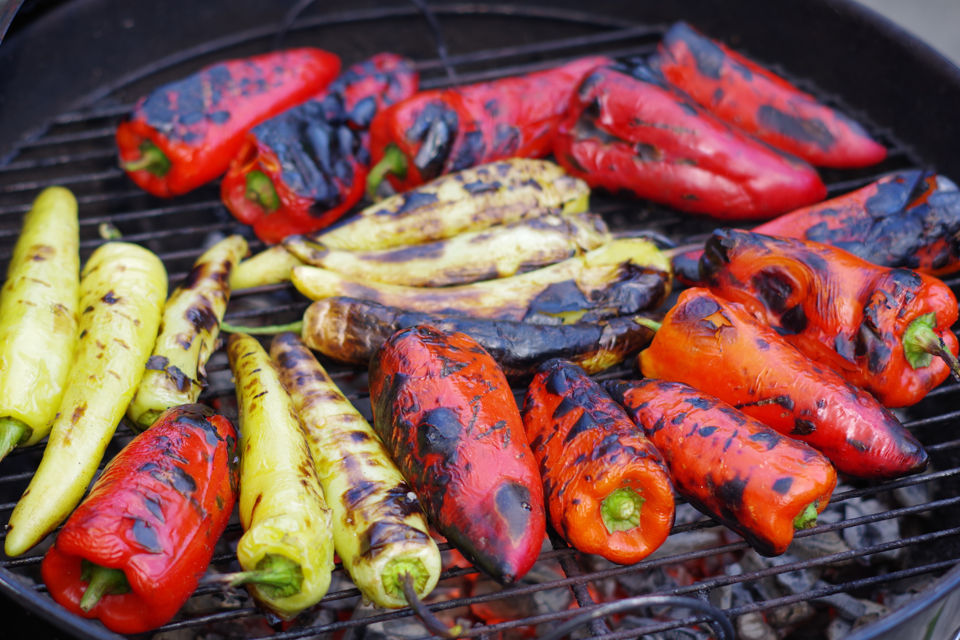
Ajvar was next on our list. This is a signature pepper based condiment widely popular throughout Balkans. Each household in Serbia makes their own; although these days with availability of many store varieties and pressures imposed by busy daily life, that is becoming less prevalent. Making Ajvar and pickled vegetables or “Tursija” (Torshi) were always a sure sign indicating end of summer days and imminence of incoming winter. Having pantry shelves filled with canned goods granted a cozy atmosphere around the dinner table in spite of the cold.
As a rule we always have some Ajvar in the pantry, simply our household is not going to be without it. If we are out of our own, our favorite store bought variety is “Bas Ajvar”, an import from Macedonia. I love it with fried eggs or spread on toasted bread and covered with piece of old cheddar cheese. Ajvar’s smoky aroma and smooth texture works well with feta cheese as well. Mixed together, they are typically used as a side for barbecued meats.
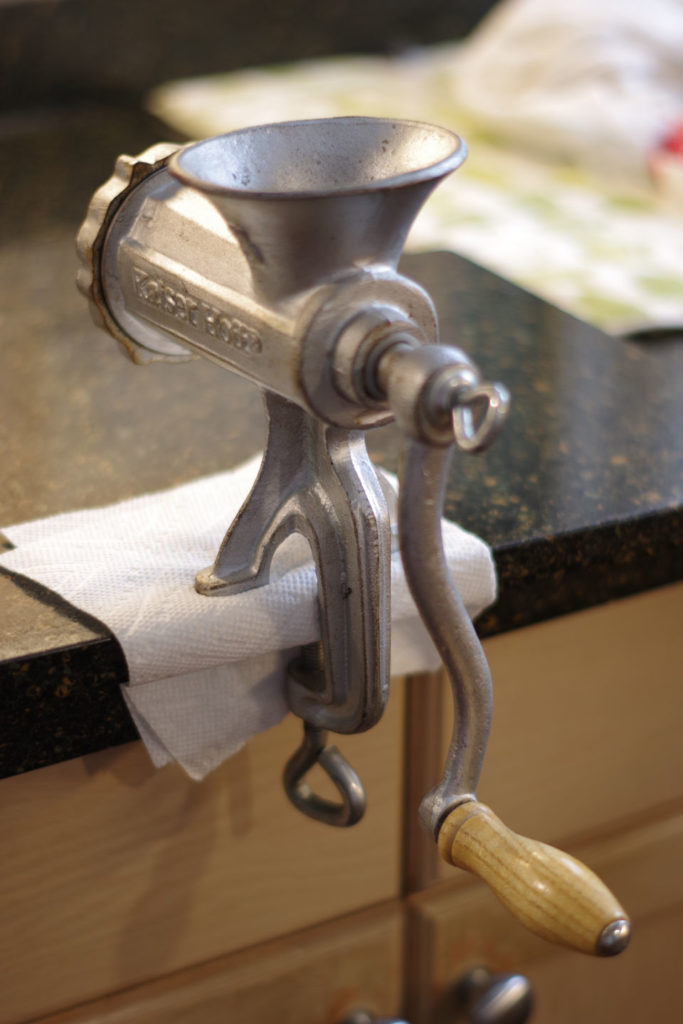

I always look forward to this part of the year and the joy of making good food. Spending a few hours in the backyard in the late summer sun, getting smoked and chatting with curious neighbors peering over the fence and inquiring about all that good smell that is spreading around. Add a beer or glass of wine and you got all you need for a wonderful time. It is a time consuming process that is for sure, but the end result is well worth it. Once you get into it and aromas from the barbecue infuse the air, the time does not matter any more and you just go along and enjoy the process.
The recipe for Ajvar involves roasting sweet long red peppers, hot peppers and eggplants. Each one is roasted thoroughly and that means near black or full black skin. Although it will look like a burned skin don’t be concerned because once you peel the skin off, there will be no burn noticeable. Peppers that are not roasted properly are very difficult to peel and the whole thing can quickly become very frustrating. After all three are cooled off in covered pot, peel off the skin and remove all seeds from the peppers and peel off the skin from the eggplants.
Put sweet peppers, hot peppers and eggplants into separate strainers and let them drain overnight.

The following day, weigh each to match the recipe ratios. Follow with grinding it all together with a meat grinder. It will take another 4-5 hours of roasting the grounded mixture in a oven until the proper thickness consistency is achieved. Customary Ajvar is cooked on a stove top but that can be very daunting since it requires near constant stirring and dealing with hot splattering. This recipe is very forgiving because once the roasting pan is in the oven, it requires only occasional stirring and there is no splattering. When a wooden spoon scraping the bottom of the roasting pan leaves a clean trail or other words you are able to see the shiny pan bottom for a fraction of a second, you are done.
Pour hot Ajvar in sterilized jars and turn upside down on a counter. Let it sit and leave it overnight to cool down and seal itself with a vacuum. Store in a dark and cool area. My batch yielded eight (8) 500 ml jars.
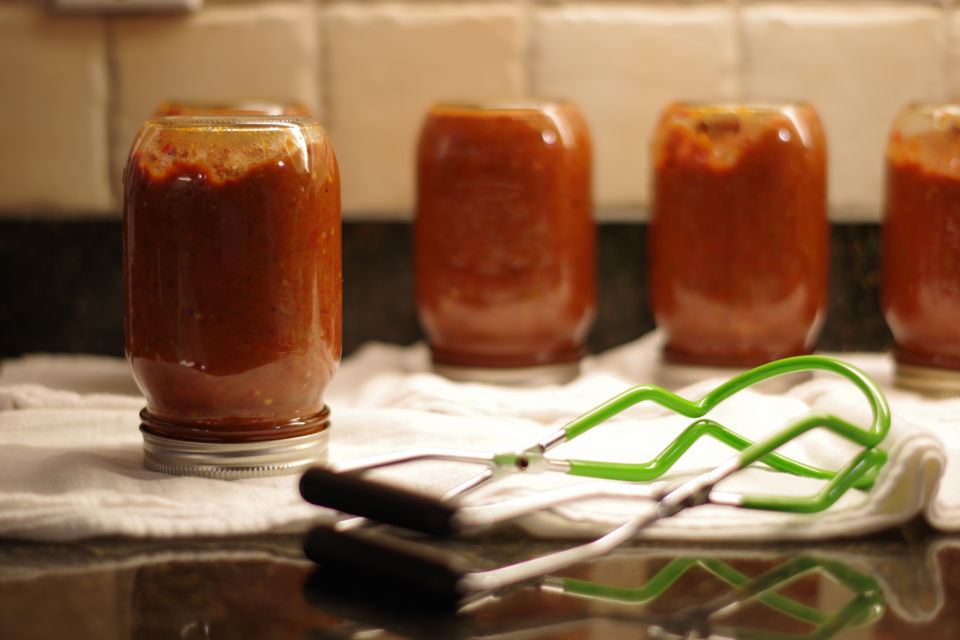
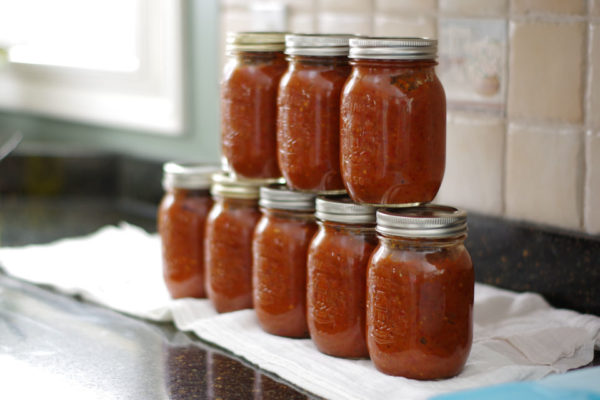
| Prep Time | 15 min |
| Cook Time | 7 hrs |
| Servings |
(500 ml) Canning Jars
|
- 4 kg roasting pimentos red sweet peppers
- 500 g banana peppers hot
- 1 kg eggplant
- 300 ml vegetable oil
- 4 cloves garlic
- 2 tbsp white vinegar
- 1 tbsp sea salt
Ingredients
|

|
- Wash peppers and eggplants with cold water.
- Roast sweet peppers, hot peppers and eggplants on barbecue. Put each roasted vegetable in their own separate covered pot. Let it cool off for couple of hours.
- Peel of skin and clean seeds from the sweet and hot peppers. Put each in a separate strainer and leave it overnight to drain thoroughly.
- Peel off skin from eggplants, put them in a strainer and let drain overnight.
- Using a meat grinder grind together peppers, eggplants and garlic.
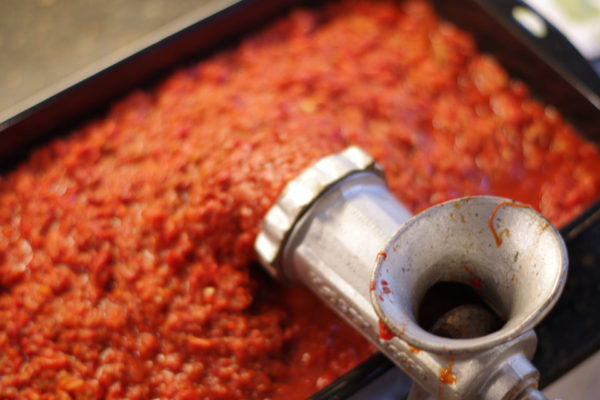
- Put it all in a large roasting pan and mix until combined.
- Preheat oven to 175°C (350°F).
- Put the uncovered roasting pan in the oven and let it heat up for about 30-45 min.
- Stir in half of vegetable oil.
- Cook and stir occasionally for the next 2 hours.
- Add salt and the rest of vegetable oil, stir in.
- Cook for the next 2-3 hours. The Ajvar is done when a wooden spoon scraping the bottom of the roasting pan leaves a clean trail.
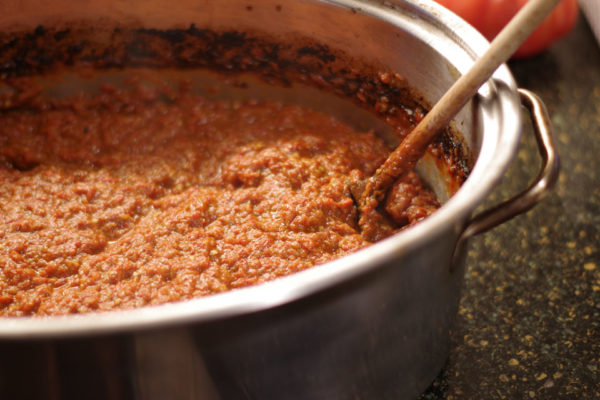
- Stir in vinegar.
- Fill clean and sterilized 500ml Mason Jars.
- Store in cool and dark place for up to a year.

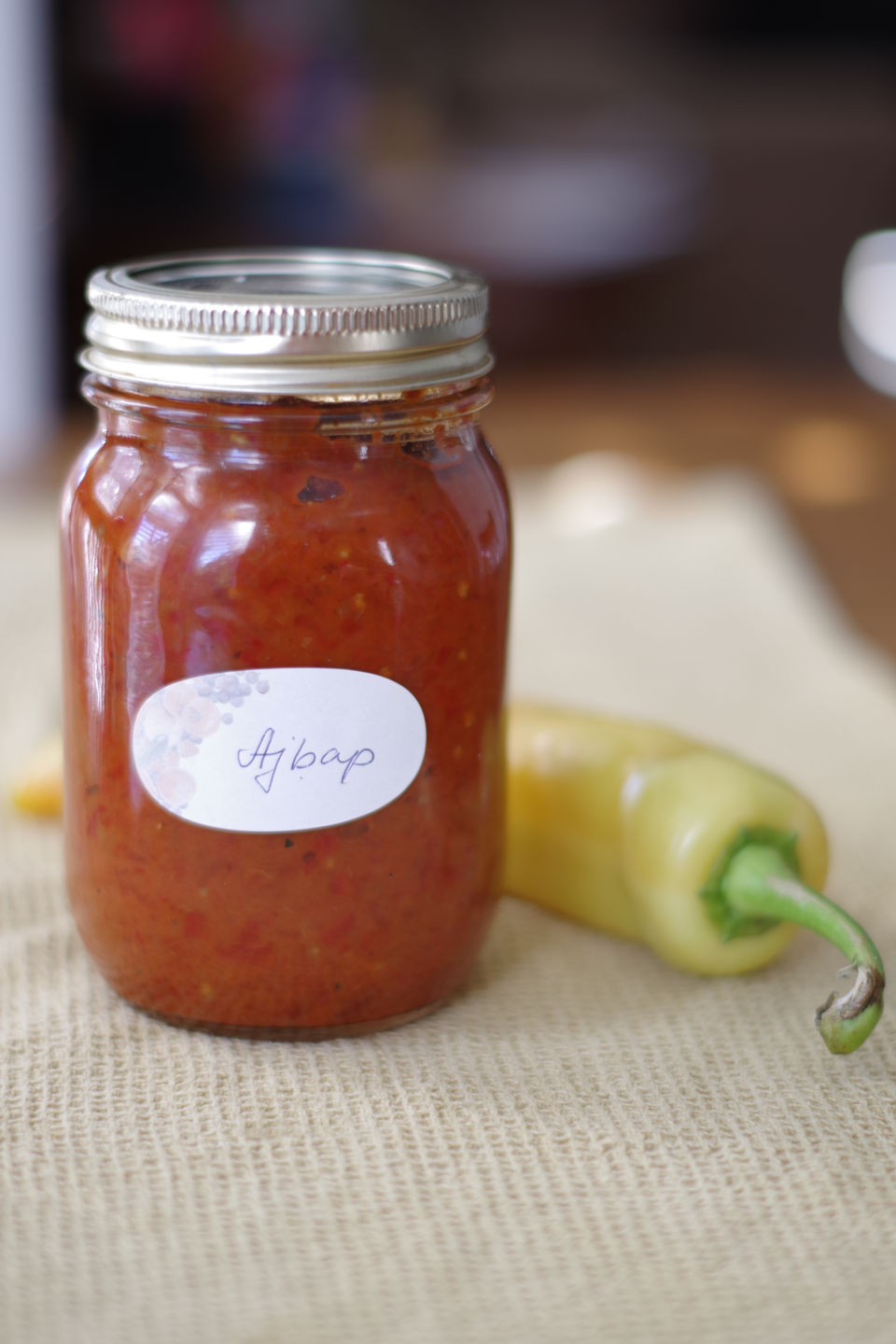
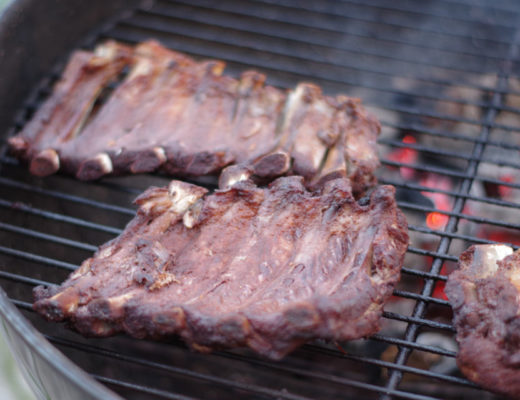
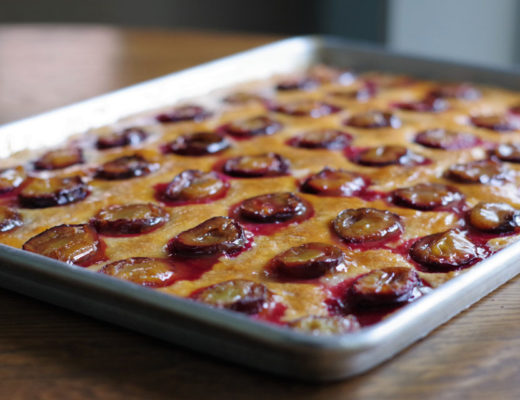
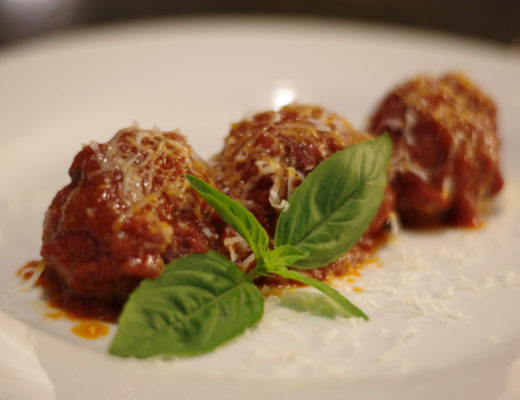
No Comments